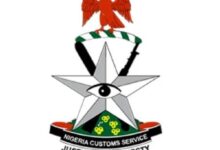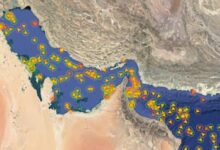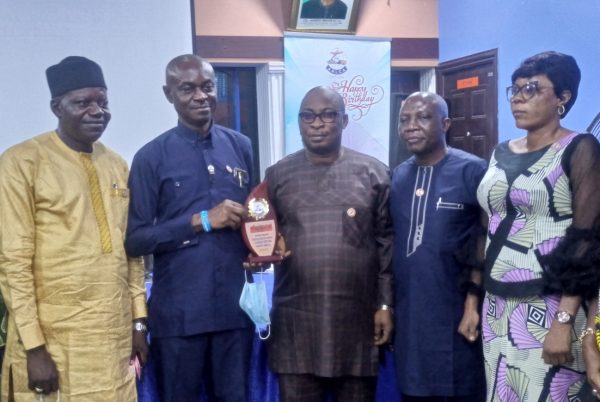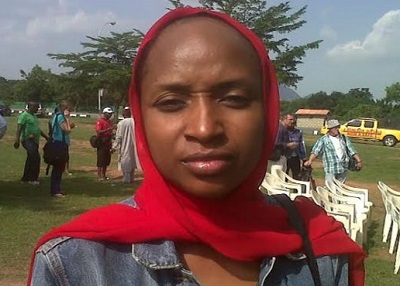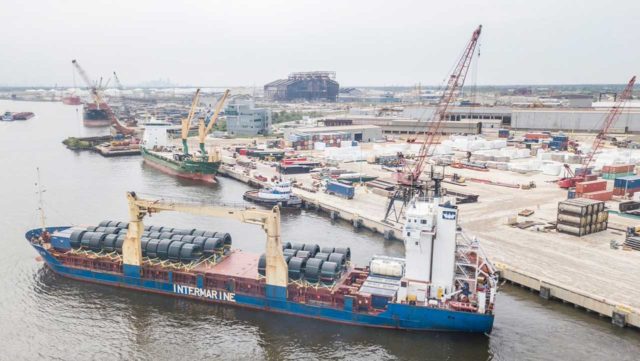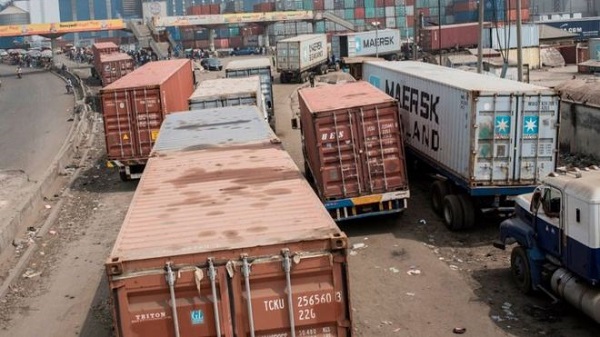Technology Critical For Greener Shipping, Economic Growth, By Experts
By Frank Odinukaeze
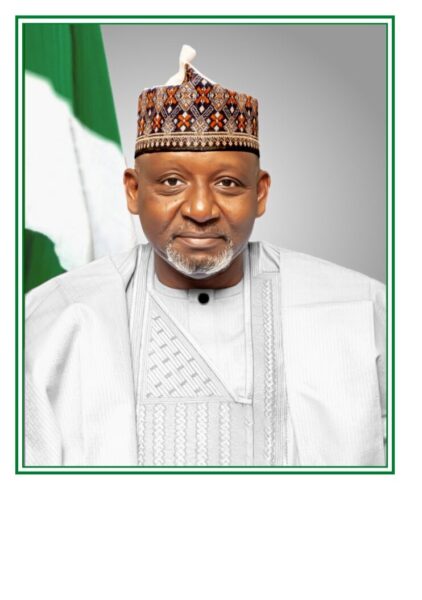
As global business transactions have become more dynamic and sophisticated , particularly with shipping operations, it has become more expedient to apply the use of technology towards achieving a greener shipping and result- driven economy, experts have said.
These considerations were the crux of discussions at the 7th edition of the 2022 Lagos International Maritime Week (LIMW) organized by Zoe Maritime Limited.
Speaking at the occasion, the Minister of Transportation, Engineer Mu’ azu Jaji Sambo who was ably represented by Mr.Babatunde Bambata, Director, maritime security, Federal Ministry of Transportation, noted that digital transformation would profoundly impact African shipping by creating a more connected integrated and efficient maritime industry in the continent.
“You will agree with me that shipping is the most cost- effective and preferable way to move goods and raw materials all around the world” he said, adding that with the use of modern technology, shipping organizations would operate more efficiently, strategically and profitably.
He noted that in an unpleasing maritime supply chain environment, ship owners and operators are turning to Information and Communication Technology (ICT) to meet the demands of their customers and deliver safety and sustainability expectations.
He said the current realities and destruction occasioned by the advent of Corona virus (COVID-19) have apparently provided eventual experience in the maritime value chain.
Sambo posited that technology must be embraced holistically for maritime business operations, to remain competitive, and sustainable.
His words ” As most nations in Africa, are import-dependent, if import operations are supported with technological application, it will reflect in the revenue generated at the port which will enhance economic growth and also improve the well- being of the public, because, all associated cost in import and export will be reduced drastically and this will in turn affect the prices of goods and services across the continent”.
Stressing further, he said,”It is important to note that one key infrastructure can make a huge difference. The technological applications, such as artificial intelligence, e-data, internet updates, censors, terminal systems, all this and more can be used to make import smart. Therefore, technology is crucial to the issue in discourse.
With use of right technological application in maritime industry, they can achieve more in less effort and stress”
Speaking also at the event, the Ambassador of France to Nigeria, Mrs Emmanuelle Blatmann, who was represented by the Consul- General of France in Lagos, Mrs Laurence Monmayrant spoke on three key issues on the agenda: Maritime security and the importance of the Anti- piracy law, the development of new technologies to improve the ecological footprint of the maritime industry, and the presence of women in this evolving industry. She noted that these topics reflect the challenges that the industry has to meet to remain one of the most dynamic and diverse economic activity, from shipbuilding, port infrastructure, administration and cyber security amongst others.
She said there were so many fields offering job opportunities and requiring a wide range of qualifications for men and women
She hailed the presence of women’s associations focused on maritime trade, such as WIMOWCA, WIMAfrica, WILAT or WISTA-Ghana and Nigeria,noting that they clearly show the rising role of women, especially African women, in an industry which used to be a men’s business.
“It is true that women only occupy 2% of the several million jobs of the maritime industry worldwide.
But, times are changing and I wish to highlight the case of French maritime companies representing over 440,000 jobs worldwide. In the Bolloré Group, women account for one third of their employees working in logistics, including maritime logistics, while CMA CGM company has 33% women on its executive committee and 32% women managers” she said.
She expressed delight that the conference has put ecology on the agenda to see how the world can move towards a greener footprint of the shipping industry.
“The French private sector has moved forward: 3 years ago, 10 French ship owners and the Italian ship owner Grimaldi signed a charter called the SAILS charter, for Sustainable Actions for Innovative and Low-impact Shipping. It aims at drastically reducing polluting emissions and at protecting the marine environment,” she said
According to her, in February 2022, President Macron hosted the ONE OCEAN SUMMIT in Brest to promote the Blue Economy. And the presence of Nigeria at this major international event was particularly appreciated as an African leader for the development of the Blue Economy in West Africa.
She said the introduction of new patterns, both innovative and economically viable, can only be achieved if maritime routes are secure. These routes she noted cover huge areas where seafarers and goods must be safe for trade to happen.
She assured that “The Gulf of Guinea (GoG) can count on the Coordinated Maritime Presence scheme, CMP. It ensures the presence of navies in the area on behalf of the EU. The French Navy, which has been present in West African waters for over 30 years through the “Corymbe” mission, is an important stakeholder of the CMP initiative”
The success of the Coordinated Maritime Presence owes a lot to its combination with the Yaoundé architecture, which includes the action of increasingly modern and involved regional navies. Nigeria is of course at the forefront of these countries.
She affirmed that the coordinated marine presence initiatives has brought reduction of pirates attacks in the GoG against commercial vessels to more than 80%>
She noted that Nigeria, with the SPOMO Act (Suppression Of Piracy and Other Maritime Offences Act), is setting an example.
“Nigeria’s lawyers and the UN DC were also involved in drafting the Supplementary Act, which was adopted in July by ECOWAS and will hopefully be ratified soon. It will notably allow any member state arresting an alleged pirate to send him, along with evidences gathered, to a receiving country which will be able to quickly try and imprison him” she stated.
Speaking at the event, the Chief of Naval Staff, Nigerian Navy, Vice Admiral Awaal Gambo observed that some vessels turn off their Automatic Identification Systems (AIS) to evade tracking even as some pirates utilize watercrafts without AIS mechanisms.
The Naval Chief, who was represented by Rear Admiral Hamza Kaoje, noted that Nigerian Navy has been utilizing new technologies especially for round-the-clock surveillance of the country’s maritime space using the Regional Maritime Awareness Capability (RMAC) and Falcon Eye facilities, which are anchored on ICT.
“Overtime, so many cases of piracy were reported in Nigeria to the extent that the nation was seen as a dreaded area for shipping. With the activities of Nigerian Navy and collaborations with key stakeholders, Nigeria has been delisted from the pirates prone areas. However, the Gulf of Guinea is a very vast area and collaboration among navies is crucial. One country can’t achieve this alone. We need to come together to join resources, share information and partner to protect the resources in the GoG,” he said.
He noted that AIS transponders are designed to be capable of providing position, identification and other information about a ship to other ships and to coastal authorities automatically, adding that those who switch off their AIS in order to a pod detection would be sanctioned.
the Managing Director of National Inland Waterways Authority (NIWA), Dr. George Moghalu expressed delight at the innovations being explored in Nigeria via electric, hydrogen and solar-powered boats, even as he suggested replacing fossil fuel plants and power generators with solar and electricity at river ports and the utilization of Liquefied Natural Gas (LNG) for inland water ways .
The NIWA MD,who spoke to the media noted that the world has advanced so much and innovations and technological breakthroughs have greatly improved human lives and businesses .
“We are in a new world where there is emphasis on maintaining an eco-friendly environment. There is no doubt that vessels that use fossil fuels will contaminate the environment. So, we are looking at the green alternatives which may be Liquefied Natural Gas (LPG), solar powered vessels, hydrogen-powered ships, vessels operating with rechargeable batteries, etc” he said.
In her welcome address, the Chairperson, Zoe Maritime Resources Limited, Mrs. Oritsematosan Edodo-Emore, said the theme of the conference, “New Technologies for Greener Shipping in Africa” was modeled after IMO’s World Maritime Day.
“The conference shall be relating this theme to various subjects that affect the maritime industry in Africa-such as managing maritime security in the Gulf of Guinea, the marine environment, maritime transportation, logistics and ports and development, maritime training education and law, as well as although the effects on women in maritime.”
Edodo noted that new technology thrive on existing infrastructure and stressed that maritime infrastructure is no exception,and urged participants to maximize the conference for networking and also visit the exhibitions.
Chairman of the port Consultative Counci(PCC), Otunba Kunle Folarin delivered the public lecture .Other speakers at the event include ;Danish Defence Attaché to Nigeria/ Maritime Military Advisor to West Africa, Captain (Navy) Soren Skovbjerg Nielsen; Executive Secretary of Nigerian Shippers’ Council (NSC), Hon. Emmanuel-Lyambee Jime; Executive Secretary of the Gulf of Guinea Commission, Ambassador (Mrs) Florentina Adenike Ukonga; a former Chief of Naval Staff, Nigerian Navy, Vice Admiral Dele Ezeoba (Rtd) amongst other.





